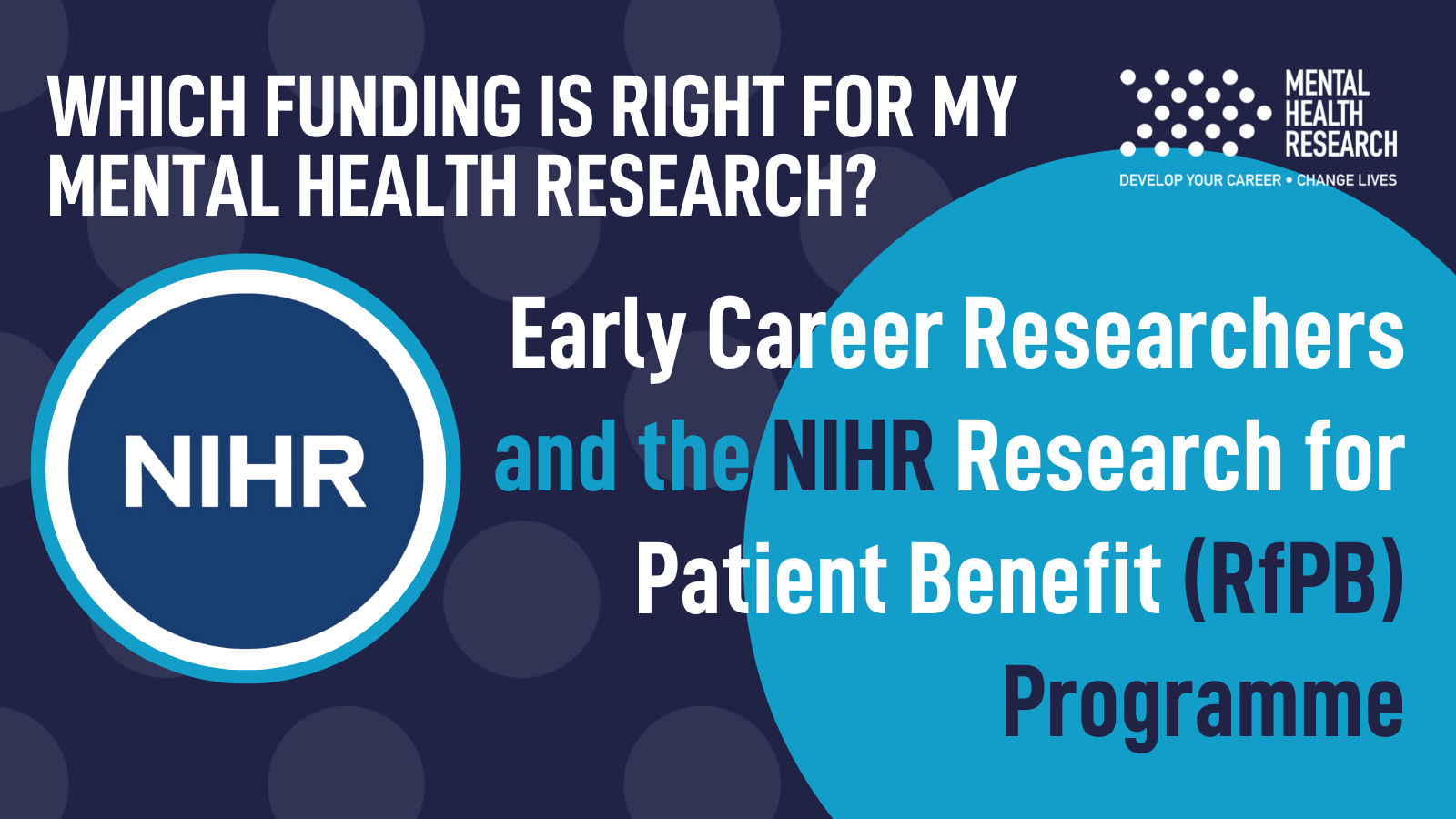
For early career researchers in mental health, navigating the many different sources of research funding can be long, confusing, and frustrating. In Part 1 of our new NIHR funding series, we’re breaking down one of the most flexible and accessible funding programmes for early career mental health researchers: the NIHR Research for Patient Benefit (RfPB) programme.
What is RfPB?
Mental health research is most effective when there is a clear direction for its implementation in real-world contexts, such as schools, communities, and healthcare systems. The NIHR Research for Patient Benefit funding programme aims to support research that increases the effectiveness of NHS services and has a direct path to patient benefit. RfPB funding supports mental health research from a wide range of methodologies and backgrounds, including intervention development and feasibility testing, and projects which could then progress to further funding through other NIHR funding programmes.
How does RfPB funding work?
NIHR issues three calls each year for the RfPB funding programme. These usually close in March, July, and November.
Funding is awarded from £50,000 up to £500,000 for a maximum of 36 months. Funding through the RfPB programme operates on a tiered system, depending on the trajectory to patient benefit:
Tier 1 funding is for research that has a clear and close trajectory to patient benefit, such as a randomised controlled trial.
Tier 2 funding (up to £250,000) is useful for research that may need a longer timeline for achieving patient benefit and implementation, such as feasibility studies.
Tier 3 funding (up to £150,000) is useful for research with a longer pathway to patient benefit, such as observational studies, proof of concept studies, systematic reviews, and intervention development.
All applications to the RfPB programme should always clearly set out how the proposed research will benefit patients and service users.
What kind of research projects get RfPB funding?
Examples of mental health research funded through RfPB include:
- Feasibility studies
- Systematic reviews
- Intervention development
- Early stage research to improve the organisation, quality, and delivery of health and care services
- Early stage research to improve patient access to and experiences of health and care services
- Recognition of and consultation for memory problems among South Asian elders: a literature review and face to face interviews to study explanatory models
- Preventing unplanned repeat pregnancy in teenage mothers: a qualitative study of patients’ and professionals’ experiences of nurse led home based sexual health care
What’s the appeal for early career researchers?
The RfPB programme is flexible in scope, researcher-led, and designed to appeal to researchers who wish to put their research into practice. RfPB research must always have a trajectory to benefit the health and wellbeing of service users.
Early career researchers are encouraged to apply for RfPB funding as a lead applicant while being supported by a senior colleague as a joint lead applicant to offer support and mentoring.
Early career mental health researchers can take advantage of the wide scope for research topics and methodologies within the RfPB remit. Projects funded through RfPB are often those that could be suitable for funding through other NIHR programmes but would benefit from a smaller-scale project through RfPB, such as:
- investigating existing interventions
- running clinical trials
- exploring new interventions or ways of delivering services
RfPB can also be used to fund feasibility studies and prepare research for further funding through other NIHR programmes.
How can I apply for RfPB funding?
Full guidance for applying to the Research for Patient Benefit programme is available on the NIHR RfPB page.
Stay up to date with RfPB funding opportunities through the NIHR funding opportunities page, where you can also view other current NIHR funding programmes and highlight notices.
Research for Patient Benefit is currently participating in the NIHR highlight notice for underrepresented disciplines and specialisms: nurses and midwives. Early career researchers with a background in nursing or midwifery are encouraged to apply for RfPB funding either as lead or co-applicants by 21 April 2023.
Want to know more about funding your research with NIHR? Stay tuned for Part 2 of our NIHR funding series, where we’ll go into detail about the different NIHR funding programmes.
